Here Are 30 Books That Had No Right to Slap This Hard in 2023
Celebrating this year’s treasure trove of literary bangers—and a sneak peek at some of next year’s.
I was originally going to be cute and roundup twenty-three of my favorite reads from 2023, but doing so would have done a great disservice to the remaining bevy of breathtaking books I’ve devoured this year. Even narrowing it down to thirty was difficult, as I have read sixty-four books this year, which is less than my yearly average of around eighty. (My depression and cross-country move took turns forestalling my plans to exceed my annual average; there are still so many books from this year that I am eager to dive into!) Nevertheless, the books I did read nourished me, even in ways I didn’t know I needed.
It's my supreme pleasure to recommend thirty of those books whose collective touch left a permanent imprint on my heart. Whether you pick up one or all thirty, I know you’ll find an undeniable glow to bask in within the pages you read or listen to.
*Denotes an entry published in a previous SOS Book Log.
** Denotes an entry pulled from a round-up or interview published elsewhere.
1. Sea Change by Gina Chung**
Every once and a while, I get so attached to a character in a book that I forget they’re not real, and then I reel. Ro, our protagonist in Sea Change by Gina Chung, is one of those characters. She’s just entered her thirties, is estranged from her father, and her boyfriend just dipped to go on a mission to colonize Mars. She lives her life in suspended animation, dragging herself to work at the mall aquarium and drinking novelty cocktails at night. The only constant in her life is Dolores, a giant Pacific octopus. When Ro learns that she might also lose Dolores to a wealthy investor interested in moving her to a private aquarium, she all but completely unravels before arriving at a crossroads—either lose herself, too, or find a new place for herself in a world marked by upheaval. It’s glorious, and I’m already jonesing for a re-read.
2. People Collide by Isle McElroy
I inhaled this book as if it were a pan of lasagna fresh from the oven and my name was Garfield. Isle McElroy’s body-swapping story subverts any expectations this comic trope may have previously precipitated by zagging when you might have thought it would zig from the beginning. When Eli discovers that he now inhabits his wife’s body after leaving the uncomfortably sparse apartment they share in Bulgaria, he soon must also contend with the realization that Elizabeth, now living as Eli, has vanished without warning. Eli sets off across Europe to find her while concurrently learning to exist as her, all while wondering what this unexplainable switch means for their nascent, yet stagnant, marriage. When he does find her, the pair embark on a transformative wend to relearn what they thought they knew about love, sex, each other, and themselves.
3. Boyslut by Zachary Zane
This preeminent queer sex writer’s crusade against the shame and stigma surrounding sexuality with which we’ve been indoctrinated has, in some ways, only just begun. From his weekly sex and relationship column in Men’s Health to his monthly relationship column at Cosmopolitan and numerous other outlets, this Brooklyn-based writer’s hybrid memoir-manifesto positions his coming-of-age story within the framework of a cultural reckoning. Deeply vulnerable and moving, Boyslut is a series of personal essays that examine how society shames us for the sex we have, and how we articulate our desires amidst the external forces that seek to snuff them out. Between stories of narcotized threesomes, forays into polyamory, and candid detailings of living with mental illness, this book stands in stark defiance of the deeply rooted sexual shame society both directly and indirectly perpetuates. It asks us to imagine our lives unencumbered from the self-condemnation with which we have been programmed, and implores us to unlearn the harmful messaging imparted by our still-moralistic society to make room for the rediscovery of self.
4. Where There Was Fire by John Manuel Arias**
There is reading a book that is described as lush, and then there is reading Where There Was Fire by John Manuel Arias. This poet and author’s book is a multi-sensory feast, from beginning to end. Teresa Cepeda Valverde and her family’s future is forever changed after a deadly fire consumes the American Fruit Company’s most-lucrative banana plantation in Costa Rica one night in 1968. Shortly thereafter, her husband and daughters’ father, José María, who works there, disappears without a trace. Their daughters, Lyra and Carmen, lose their maternal grandmother, Amarga, whose death on the same night is later revealed to be linked to José María’s disappearance. This is Teresa’s second plantation-related loss, after her father, a corporate lawyer for the company, went missing years before. Her loss and grief leave her distraught enough to flee to Washington, D.C. for six years, leaving her daughters in the care of their three godmothers. Twenty-seven years later, Teresa and Lyra still reel from the wounds left by that fateful night. Lyra raises Carmen’s son, Gabriel, as her own after her sister’s suicide, and refuses to let him discover the truth, which, along with the anger she still harbors against her mother for abandoning them, results in Teresa’s estrangement from the two. Yet Lyra can’t help but plunge into her pain to unearth the truth underneath it all: a massive cover-up that sealed the fate of not just their family, but many others like theirs, victims of international exploitation. What results is the story of a fractured family trying to reconcile a past steeped in secrets, loss, and sadness—and trying to find forgiveness amidst it all.
5. Tweakerworld by Jason Yamas*
Within weeks of moving to Berkeley after things fall apart for him in Los Angeles, Yamas quickly finds himself pulled into the San Francisco ParTy n’ Play (PnP) scene. His longtime addiction to Adderall extends to include the harder stuff, like the relaxant gamma-hydroxybutyrate (GHB), and before long, Yamas becomes embroiled in a world of drug-fueled, round-the-clock sex parties, criminals, and a colorful cast of characters who pull back the curtain on any preconceived notions we may harbor of the stereotypical tweaker. Drawing from his background as a New York University-educated multimedia producer, Yamas becomes a dealer under the guise of research for a project he hopes will tether him back to a normal life. Soon, by virtue of demand and a hearty entrepreneurial spirit, Yamas becomes one of San Francisco’s top drug dealers, his reputation rippling through a network of clients and rival dealers alike. As his friends and family try to sway him toward the road to recovery, he resists it in pursuit of an illusion that can only be broken by confronting that which continues to get in his way, and the only means by which he can find salvation: himself.
6. Blackouts by Justin Torres
Winner of this year’s National Book Award for Fiction, Blackouts by next-level literary luminary Justin Torres doesn’t seek to fill in the holes of what has been lost to the folds of history, so much as it devotes to honor them. After our twenty-something-year-old narrator wakes up from a blackout to find his apartment flooded, he drives into the desert to a dilapidated housing complex called the Palace to see Juan Gay, his elderly, moribund friend whom he met at seventeen when they were patients at a psychiatric hospital. Juan lets the narrator move in with him in exchange for the promise to carry out his unfinished life project, which centers around a real-life research study published in 1941 by George W. Henry called, Sex Variants: A Study in Homosexual Patterns. No sooner has he begun to pore over the pages of Juan’s tattered copy does the narrator notice that every page is heavily redacted with black marker, leaving only fragments—“little poems of illumination,” as he calls them—in their wake. Forced to examine what lies between and beyond the text, our narrator, vitalized by his conversations with Juan and mining memories of subjective significance, finds himself in the overlap between fact and fiction, but leaves it up to the reader to discover how and in what capacity the stories we tell and the living histories we carry unite.
7. The Loneliness Files by Athena Dixon
In our age of digital hyperconnectivity, we are constantly performing curated versions of ourselves, whether we’re cognizant of it or not. Still, there is some baseline of truth to the images we project—they are still of us after all, extensions of the people we see—or wish to see—in the mirror. But that’s not the only thing that bonds us: There is a shared loneliness that sits on the other end of the seesaw. For every surge of dopamine is an ache of isolation. Poet and author Athena Dixon invites us to consider the holes technology can’t fill in her revelatory memoir-in-essays, The Loneliness Files. In one essay, she shares the story of Joyce Carol Vincent, a woman whose death went unnoticed for three years until her body was discovered in front of her TV, and contends with the fear of meeting the same fate. In another, she examines the downfalls of hyper-independence. This is not a self-help book; there is no solution to the myriad different types of loneliness we have come—or will come—to know in our lives. Instead, we find reflections of ourselves narrated by an indomitable voice, unafraid to give language to the fears we hesitate to even acknowledge. Through Dixon’s words, we are given the gift of company.
8. How to Say Babylon by Safiya Sinclair
Every sentence Safiya Sinclair writes bears the weight of a prophecy: They brim with clarity, conviction. Her debut memoir, How to Say Babylon, consists of both, and then some. Born and raised in Montego Bay, Jamaica, there were few moments in Sinclair’s day-to-day life growing up that were not dictated by her militant father, a reggae musician and fervent adherent to an arbitrary sect of Rastafari. She was conditioned to fear—but never question—the immoral pestilence spread by the Western world, which the Rastas call Babylon. Her father grew stricter—and more volatile—the older she got, becoming fixated on maintaining her purity, which resulted in a strict set of rules: no make-up, no jewelry, no friends, the list of things he forbade growing alongside the dreadlocks she was expected to don. While her mother never questioned her father—at least not out loud—she was committed to enriching her children’s lives through books. It was in one that Sinclair discovered poetry, which provided a lifeline and an opportunity for her to discover a voice of her own. Buoyed by her thirst for knowledge, Sinclair pursued her education with urgency, hoping it could equip her with the tools needed to break away from the culture of silence that denied her any chance of self-discovery. With the possibility of a new future on the horizon, turbulent disagreements with her father grew into violent collisions as her reckoning with the patriarchal control of her upbringing magnified to include the harmful legacy of colonialism in Jamaica. On the other side, however, is a woman who has found her power. Not awaiting—for she’s been there all along—but free.
9. Leg by Greg Marshall*
Leg is hilarious just as it is insightful, and Marshall’s voice is a fucking miracle. He grew up in 1990s Utah as the middle sibling out of five in a family living in perpetual crisis: His mother endures debilitating chemo for cancer in between writing her newspaper column; his father battles ALS; and he walks with a perpetual limp that none of the various therapies and surgeries he’s undergone were able to mitigate. On top of all of this (or bottom! Or somewhere in between. Who am I to put anyone in a box?), is a young boy struggling to reconcile his growing fondness for boys. His parents keep his cerebral palsy a secret from him in an effort to shield him from ridicule, and it wasn’t until he turned thirty that he uncovers one of his mother’s newspaper columns which confirms his diagnosis.
Finally able to put a name to a whole part of his identity that has eluded him his whole life to that point, Marshall paints an extraordinary portrait of a young man around the facets of identity that we are unable to change about ourselves. What we’re left with us is a reminder of the inherent tools at our disposal that we can use to carve the space for ourselves when the world at large won’t.
10. Your Drive Is Waiting by Priya Guns*
A satirical twist on Martin Scorsese’s iconic 1970s movie Taxi Driver, Your Driver Is Waiting by Priya Guns is a wildly funny and biting novel about a rideshare driver named Damani, a queer Tamil woman living paycheck to paycheck in a city brimming with protests aimed at police brutality, climate change, and disparities in wealth. Trying to make ends meet while caring for her mom on the heels of her father’s death, she meets Jolene on the job. Jolene, who is white, wealthy, and privileged, is also a well-read activist and social worker. Their chemistry is palpable from the start, and their relationship intensifies until Damani brings her to Doo Wop, a socialist collective housed in an abandoned building. Shit hits the fan when Jolene gets into a heated argument with Damani’s friends at Doo Wop and does something that leads to catastrophe.
TL; DR: THIS BOOK SLAPS.
11. Quietly Hostile by Samantha Irby*
NO EXPLANATION NEEDED. JUST GET THIS BOOK AND THANK ME LATER.
12. I’m Never Fine by Joseph Lezza*
I’m Never Fine is a tenderly crafted, deeply moving memoir and cornucopia of hilarious one-liners (“I drive the point home, mostly because the point is drunk”) that navigates the tempestuous time in Lezza’s life leading up to and following the death of his father from pancreatic cancer. But it would be an oversight to just call this a grief memoir. The connective tissue of this book stems beyond the universal feeling of loss; it asks us to recalibrate our approach to hardship and healing, with heart and humor to boot. Lezza explores the non-linear nature of grief—quite literally depicted by his experimentation with form; there are essays, poems, vignettes, veers right where you think he would veer left, and vice versa—by subtly rejecting the Western proclivity to categorize it and produce a step-by-step guide to try and outwit the trickster that it is. But Lezza doesn’t try to outwit it. Instead, he turns inward, and traces his steps backward in order to move forward. In the end, we are left with the lesson that loss is sometimes more about what you gain.
13. Congratulations, The Best Is Over! by R. Eric Thomas
This year tested all of us in different ways, but no matter how far we’ve been pushed to our limits, reprieve came in the form of another hilarious and heartening collection from R. Eric Thomas. Just when we think we have everything figured out, we will always, without fail, return to square one—just to do it all over again. Congratulations, The Best Is Over! suggests that perhaps square one is the destination, for aren’t we always coming back to it? When everything begins to shift once again, Thomas finds himself where he thought he had long-escaped: Baltimore. But he doesn’t recognize his hometown anymore; even the rhythm, unforgotten in some far corner of his memory, sounds different. And Baltimore doesn’t recognize him, either. He attends his twenty-year high school reunion and discovers his name tag displays the photo of some white dude with blonde hair. (No, it wasn’t me; I didn’t start frying my head with bleach until college.) He opens up about his struggles with depression, words that I personally desperately needed to read at the time. And I know, as made evident by Thomas’s articulation on the subject, that I’m not alone. There is a terrifying, yet uproariously funny, incident involving a geyser of blood and drenching an urgent care room in it. Thomas describes the highs and lows of homeownership, the latter including a band of gay toads hellbent on taking over his yard. My love for Thomas is endless, and impossible to fit into a succinct paragraph, so to quote Lady Gaga: talented, brilliant, incredible, amazing, show stopping, spectacular, never the same, totally unique, completely not ever been done before, unafraid to reference or not reference, put it in a blender, shit on it, vomit on it, eat it, give birth to it.
14. All-Night Pharmacy by Ruth Madievsky**
Ruth Madievsky solidifies herself as an unmistakable voice in fiction with this spellbinding debut. In All-Night Pharmacy, the novelist, poet, and essayist is not interested in putting what is handed down to us in a box. Instead, we are asked to consider what it would be like to hold space for the things that are of us—in us—and the inexactitude that comes with them. Our unnamed narrator—which is fitting, since her search for selfhood is at the core of this novel—grapples with the dark underbelly of her Soviet Jewish inheritance that manifests in addiction, self-destructive behavior, and, chief among them, her codependence with her older sister, Debbie. This dynamic reaches a fever pitch when they get into a fight and she stabs Debbie, who survives and goes missing shortly thereafter. While the narrator contemplates looking for her, she meets Sasha, a queer Jewish refugee from Moldova who claims to possess psychic abilities, at her job doing admin work in an emergency room. Soon, a budding romance between the two takes them on a trip to Sasha’s homeland, where the narrator begins to pull apart her intergenerational trauma—and who she is underneath it all.
15. Open Throat by Henry Hoke*
In Open Throat by Henry Hoke, our narrator is a queer and hungry mountain lion who quickly burrows their way into the reader’s heart. Their home is the land ravaged by drought underneath the Hollywood sign, where they spend their days standing guard over a nearby homeless encampment and eavesdropping on hikers fluent in therapy-speak. Told through fragmented prose not unlike poetry, we learn about the lion’s past: their loves, losses, and caring mother and violent father, the latter firmly rooted in the depths of our protagonist’s mind. They recall sharing a deer carcass with another male mountain lion while they witness two men having sex in a cave, and, in recognizing a mutual queerness, they begin to wonder what other traits they share with those who dwell in the densely populated streets below.
As a man-made fire destroys the encampment and surrounding area, our leonine narrator is forced from the desert hills to the other side of the highway where their proximity to humans fans the flames of temptation. As they struggle to find community while their world diminishes, by virtue of flooding and burning, they come to realize that Angelenos, too, grapple with complexities that render connection to each other (and themselves) a challenge. What dawns on them is the glimmer of their own humanity within.
16. Glitter and Concrete: A Cultural History of Drag in New York City by Elyssa Goodman
Journalist, drag historian, and host of the long-running reading series, Miss Manhattan, in New York’s East Village, Elyssa Goodman blesses our bookshelves with a deeply researched and especially urgent book on the history of drag in New York City. From early female impersonators in the 1920s to the Harlem Renaissance balls and the introduction of drag culture to the mainstream with RuPaul’s Drag Race, Glitter and Concrete depicts the evolution of drag—as an art form, community builder, and tool of political resistance—through comprehensive historical analysis, coupled with original interviews with legendary performers, and glamorous never-seen-before photos. I sleep better at night knowing this book exists; it is a vital contribution to queer history, which is important to learn now—this is where I turn the mic towards you so you can shout back: MORE THAN EVER!
17. The Survivalists by Kashana Cauley*
In The Survivalists, Aretha, a young and ambitious Black lawyer, meets and falls for Aaron, the founder of a local coffee company and the owner of a charming Brooklyn brownstone. Aretha is not only drawn to Aaron’s sunny disposition, but also finds in him a fellow member of the, as she calls it, “dead parents club.” Things are moving swiftly and smoothly, until, of course, the proverbial other shoe drops—except in this case, it’s two shoes in the forms of James and Brittany, Aaron’s gun-stockpiling, doomsday-prepping roommates. Aretha’s skepticism of the pair begins when she discovers the array of guns they own, and the metal bunker in the backyard that they’ve filled with various survivalist gear. Ambivalent at best, Aretha decides to move in with Aaron and his conspiracy-driven roomies, the siren call of living rent-free and not returning to a dating app louder than the doubts abuzz in her mind. As her law career starts to flounder, and with Aaron constantly away on bean-sourcing trips abroad, Aretha is seduced into James and Brittany’s lawless world, eventually joining them on various trips to buy illegal guns they later sell. Soon, she discovers herself free from the self-imposed inhibitions that have subjugated most of her adult life. What’s cleverly produced is a sociopolitical inquiry into where self-preservation ends, and where self-destruction begins.
18. The Male Gazed by Manuel Betancourt*
A seamless blend of memoir and cultural criticism, The Male Gazed by queer Colombian culture writer and film critic, Manuel Betancourt, scrutinizes how queer men—himself included—metabolize the depictions of idealized masculinity served by nineties pop culture and asks the age-old question most of us have, at one point or another, asked ourselves: Do I want him, or do I want to be him?
From animation (from which Betancourt notes he’s learned everything; his mother owns an animation studio in Bogotá to boot) to telenovela stars, and teen sensations like Ricky Martin and Slater and Zack Morris from Saved by the Bell, this collection pulls the veil back on masculinity, revealing its many layers and inviting us to reframe how they texture each other in our culture then and now—and in our own minds. A bounty of heart, humor, honesty, acuity, and everything in between, this book is at once a dream and a revelation.
19. Flores and Miss Paula by Melissa Rivero
At long last, Melissa Rivero’s sophomore novel following her vividly powerful debut, The Affairs of the Falcóns, is here. When I tell you I was counting down the days till publication! Three years after the death of her father, Martín, thirty-three-year-old Mónica Flores (who is just known as “Flores” to her colleagues at work) finds a note tucked underneath her father’s urn one day while cleaning the Brooklyn apartment she shares with her sixty-three-year-old-mother, Paula. The note, written in Paula’s handwriting, reads: “Perdóname si te falle. Recuerda que siempre te quise.” (“Forgive me if I failed you. Remember that I always loved you.”) As shocked as she is, Monica keeps this discovery a secret while endlessly mulling over what her mother would need forgiveness for. The gap left between them in the wake of Martín’s death only widens as each judges the other’s decisions: Paula thinks a better use of Mónica’s time would be finding a husband instead of devoting it to a fledgling start-up that overworks her; Mónica wishes Paula would ask for a raise at work, and try to shy away from her married best friend, Vicente, with whom she has history. Not long after, their dormant issues and complicated past teeming with disapproval and resentment erupts with unbridled fury since Martín is no longer around to mediate. As soon as Paula musters the courage to tell Mónica the secret about Martín, shit. hits. the. fan. Gloriously, because Rivero is a goddamn genius who knows how to keep her readers on their toes. And, like the virtuoso of tension that she is—knowing when and how to ramp it up, when and how to release it—we are rewarded with an unforgettable conclusion.
20. The Heartbreak Years by Minda Honey
I am someone who firmly believes in synchronicities, especially when it comes to the books I read. This was the first book I started and finished since moving to Los Angeles over a month ago, and I couldn’t have picked a better companion for such a monumental leap in my life. Like me, Minda Honey packed up her entire life and made the cross-country trip to Southern California. Unlike me, she was joined by her boyfriend with whom she had been since high school. (I didn’t meet my first boyfriend until…well after high school.) When her relationship to her high school sweetheart crumbles, Honey spends the next decade or so navigating hook-ups, situationships, meet-cutes, bad dates, worse dates, and everything in between and beyond the perils of dating in your twenties. Despite any defeat or frustration, amorous euphoria still seemed only one kiss away. With thirty around the corner, Honey realizes that the narrative trajectories she longed for while reading romance novels growing up differed starkly from the courtships with which she’d become entangled. As she reflects on the divergence of her entanglements, she also addresses along the way the other complex realities that come with dating as a Black woman who is also trying to come into herself. This powerful yet tender memoir captivates, and swoons every step along the way.
21. The People Who Report More Stress by Alejandro Varela**
From the author of the critically lauded novel, The Town of Babylon, comes this highly anticipated collection of short stories from National Book Award finalist Alejandro Varela. The People Who Report More Stress is a collection whose narrative thread links the anxieties of those trying to carve—and keep—their spaces in the world while living in the margins. We meet a Latinx couple who supplement their insufficient income by selling stolen high-end designer clothes, all in an effort to buy a house in the suburbs; a queer Latinx man seeks the use of dating apps to alleviate the restlessness in his relationships; and other stories that look at the way gentrification, racism and sexuality impact the stress in these characters’ lives. If this book were an album, every song would be a hit single.
22. I Keep My Exoskeletons to Myself by Marisa Crane*
In the not-too-distant future of America, there are no prisons. Instead, a government entity known as the Department of Balance has installed surveillance cameras in every home and punishes wrongdoers by relegating them into a class of people called “Shadesters.” Forced to live as second-class citizens, Shadesters are flagged by an extra shadow, sometimes more than two—even if the crime committed is minor or unintentional—that is meant to serve as a constant reminder of their misdeeds. They don’t even have to commit a crime to warrant a shadow; anyone who is deemed a threat to the status quo by the Department receives this physical brand. This ostracization leads to limited food options at the grocery store, longer waits for healthcare benefits, and the deprivation of other civil rights protections and freedoms in addition to the maltreatment from “NoShads.”
Kate is bereft with grief after losing her wife, Beau, to childbirth and is left to raise their child alone under the watchful eye of the nefarious Department. She copes with her loss by drinking and watching reality television, and the only thing keeping her afloat is raising their daughter, Bear, who was born with a second shadow after “killing” her mother. As Bear grows up, so does her unwavering light, which shines bright enough for Kate to see hope for the future in the form of queer solidarity, community, and resistance.
23. Brother & Sister Enter the Forest by Richard Mirabella*
In this debut novel by soon-to-be literary powerhouse Richard Mirabella, we meet Justin, who arrives on his sister’s doorstep after years of absent communication, in need of a place to stay as after his home has collapsed. His sister, Willa, is reluctant at first, worried that chaos will closely follow if she opens her home—and heart—to him. She’d always been quick to protect her brother, especially when they were growing up. But, in high school, when Justin’s slightly older, violent boyfriend had committed a horrifying act of violence, the two had fled town on a road trip that irrevocably damaged Justin and his family forever. Years later, as he’s trying to connect with the people in Willa’s life—her boyfriend, her landlord, their overbearing mother with whom they both have a fraught relationship—Willa struggles to reconcile the limits of her love for her brother with the steady life she’s made for herself. As Justin spirals out of control, struggling with sobriety and the sustained effects of a brain injury, brother and sister once again find themselves testing the elasticity of their orbit around one another.
By weaving together two timelines, Mirabella delivers a powerful reckoning with past trauma and finding connection amidst it all. We are left with the reminder that we move through this world in response to the choices we make, and that we’re always one choice away from finding a way out of the thickets we’re lost in.
24. Death Valley by Melissa Broder
Like every good story, we begin at a Best Western, which I believe should now be classified as a narrative device attributed to Melissa Broder. In this emblematic author’s latest, we follow a forty-something-year-old writer as she travels to the California desert in hopes that her new surroundings will bring about the revelatory moment she needs to finish her novel-in-progress. At least that’s what she tells herself. Back home, in Los Angeles, her father remains in the ICU after a car accident has left him straddling the line of life and death. She’s also left behind her chronically ill husband whose disability impacts their marriage in ways she’s still trying to reconcile. Her mounting anxiety and depression impel her to hike a trail near the hotel, where she stumbles upon a giant, peculiar cactus whose mystical gash she enters and encounters her father—as a five-year-old. Finding herself drawn back to the fantastical cactus, she returns, each successive hike beckoning her through more sun-scorched trails, shadowy dunes, and rocks with whom she converses through dialogue only Broder can conjure. When inevitably she finds herself lost in the vastness of the high desert, among the “orchestral quiet” of the rocks and her lurking “luminous entourage,” her tale unfolds into one of not just survival, but of the often-overlooked divinity surrounding us—and within us.
25. Flux by Jinwoo Chong**
In this deliciously unpredictable debut novel by rising star Jinwoo Chong, the lives of three protagonists intersect when one of them, Brandon, a queer, half Korean twenty-eight-year-old, is hired by Flux, a large, nebulous Silicon Valley-esque start-up that inadvertently stumbles upon the technology to warp time. As Brandon becomes embroiled—not fully by choice—with the unprecedented discovery, the ramifications of his participation also impact our other two principal characters: Bo, an eight-year-old who loses his mother in a tragic accident four days before Christmas, and Blue, a mute, forty-eight-year-old man who wakes from a coma only to undergo a procedure to restore his lost voice that backfires. As three timelines converge, the throughline emerges: regret, loss, and trauma. In the end, you’re left dazzled without getting dizzy. Go on the rollicking ride this book offers.
26. You Could Make This Place Beautiful by Maggie Smith**
I did not think I could be any more in love with poet and writer Maggie Smith until I read her new book, which immediately claimed a spot on the New York Times best seller list on the heels of its release, and for good reason. Here’s the one-sentence descriptor: It’s about Smith’s divorce, and how writing helped her get through it. Here’s why you should read it, even if you’re not going through a divorce: According to my lunar literate friends, we are going through a period of intense change and transition. Whether you’re into the woo-woo or not, it’s hard to deny. Just look around us. Personally, I don’t have to look far: Two of my best friends were broken up with on the same day. I myself have been struggling to balance on my two feet all year. This book is an outstretched hand—all you have to do is reach out, grab it and let it lead you somewhere new and beautiful.
27. I Felt the End Before It Came by Daniel Allen Cox*
From the outside, it looks like Daniel Allen Cox found himself at a crossroads. But for him, and many folks trying to examine their upbringing through the lens of their queerness, it’s more complicated than that. In this compulsively readable memoir, Cox reveals how that crossroads is more like a complicated web, one that he still finds himself disentangling to this day. Growing up as a Jehovah’s Witness came with firm boundaries about what was unacceptable and not: His mother almost died because she refused to get a life-saving blood transfusion, a strict rule regarding the sacredness of blood. Birthdays and holidays are not celebrated. But what happens when you yourself are deemed wholly unacceptable? As he struggles to reconcile his religion with his queerness, Cox realizes he can’t—it’s one or the other.
From preaching door-to-door in Montreal in his youth to getting swept away in the rollicking art scene in New York City, Cox straps us into his passenger seat and takes us on an unforgettable ride. A vital and compelling story aside, this book blew me away at a craft level: Cox has the uncanny ability of imbuing his writing with urgency in a way that still allows for tenderness, almost as though his sentences are brought to a boil, then reduced to a simmer. Sorrow and rage bubble to the surface, and what wafts from the page is a powerful reckoning.
28. Ripe by Sarah Rose Etter
I don’t think there’s anyone in my life whom I didn’t recommend this electric author’s first book to. Paradoxically, everyone I know has read and loved her critically hailed and award-winning debut, The Book of X. Just the way nature intended! In her superlative sophomore, thirty-something-year-old Cassie’s dream job at a ruthless Silicon Valley start-up quickly devolves into a nightmare. The long hours seem to get longer by the day, her bosses exude toxicity potent enough to make any living thing wilt, and her responsibilities at work seep into the unethical. As bleak as her surroundings are, corporate and beyond—San Francisco home to two different worlds in parallel operation: one a flagrant display of wealth, the other of increasing indigence—she is never alone. Ever since she can remember, a miniature black hole has followed her like a shadow, expanding and shrinking depending on her emotional state. As rents continue to rise, and her employment seems like less of a guarantee, her ill-fated affair with a polyamorous chef results in an unplanned pregnancy. What follows is a perfect storm, both calculated and visceral. A coordinate graph of a novel—cerebral but vulnerable; profound yet darkly funny—this story compels, piercing beyond its written pages.
29. The Lookback Window by Kyle Dillon Hertz**
This wildly explosive debut novel from literary star-on-the-rise Kyle Dillon Hertz tells the story of twenty-six-year-old Dylan as he confronts his deep-seated trauma after New York state passes the Child Victims Act. The three years he spent as a victim of sex trafficking during his adolescence in suburban New York casts a long shadow on his life. After a failed police investigation, and long after the statute of limitations for the crimes committed against him have expired, the new law gives him one year to make a choice: to sue his former abusers, or to pursue some approximation of justice on his own terms. The pressure to act permeates every facet of Dylan’s life: his marriage to his husband, Moans, his relationship with his closest friend, James, and his overall ability to connect with those closest to him and those who wish to get closer. A maze of drugs and sex clouds his judgement on which path to take, leading him to bathhouses and strangers’ apartments alike, until he ultimately finds a new way to move onward.
30. A Living Remedy by Nicole Chung**
After her father’s premature death at the age of sixty-seven from diabetes and kidney disease, Nicole Chung is overcome with grief and rage, knowing that inaccessible medical care as a result of financial precarity largely contributed to his early death. Her mother is diagnosed with cancer a year later, right before the COVID-19 pandemic. Chung channels her fury into writing this gently crafted, powerfully deployed memoir, and by doing so, extends a loving hand—and heart—to those of us reeling from loss, especially when it’s compounded by systemic inequality. The powerful lesson we take away is: the closer we are to our grief, the better we can live with it.
***
What were some of your favorite books of 2023? Sound off in the comments below, sis! In the meantime, here are fourteen books in 2024 that I’m excited about if you want to get a head start by pre-ordering some of these absolute knock-outs.
Happy Reading, and Happy New Year. See you in 2024!
If you like this, consider becoming a paid subscriber today and supporting the work and team it takes to make this newsletter possible. Thanks again for your support!
Yours,
Greg
Credits
Graphic design by: James Jeffers
Editorial assistant: Jesse Adele
You can follow my other unhinged missives by following me on Twitter, Instagram, and Facebook. My debut memoir, Born to Be Public, is out now.


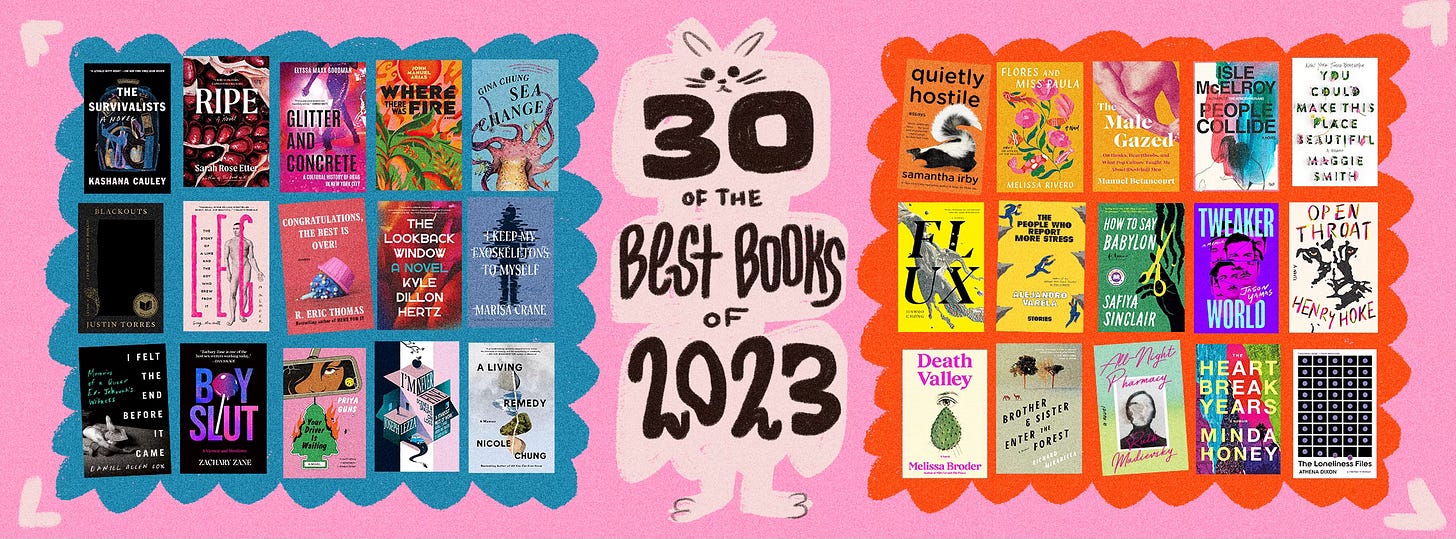
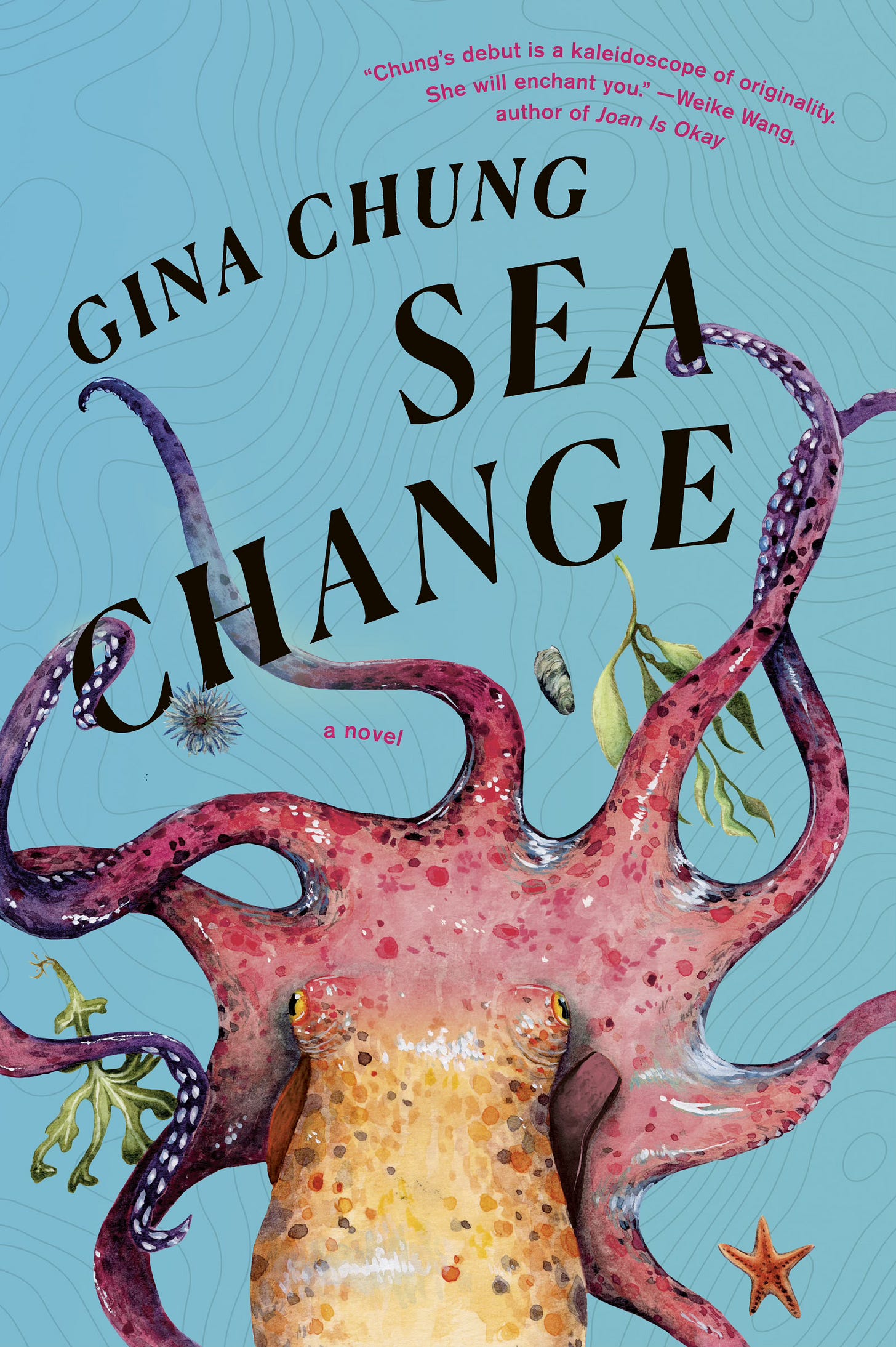
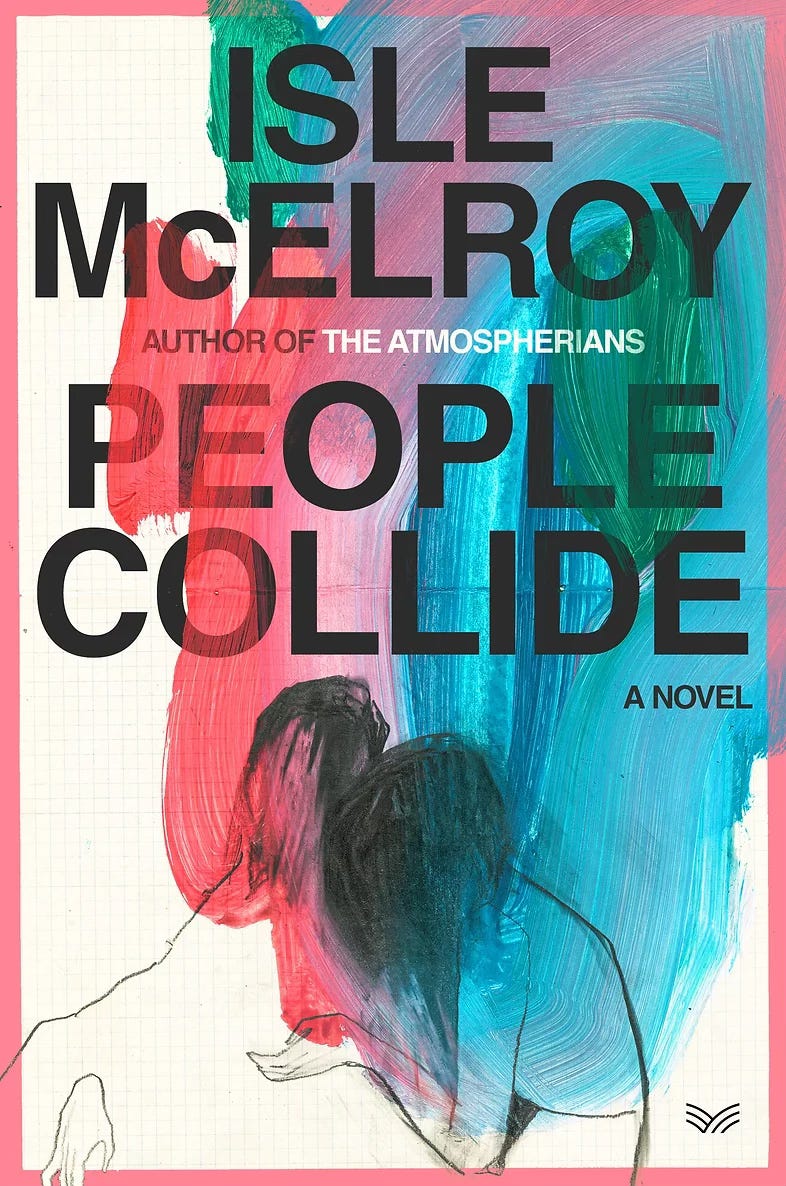
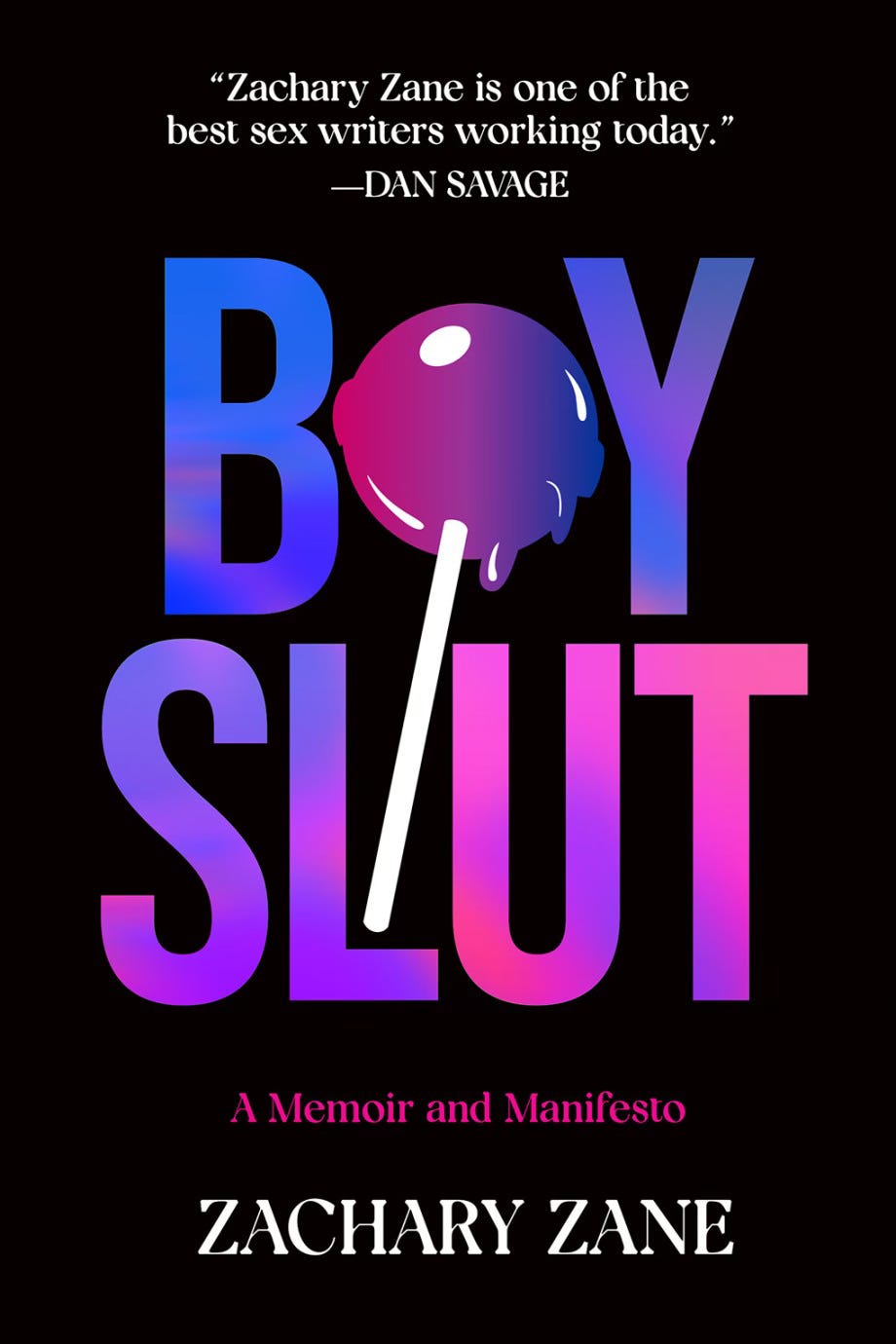
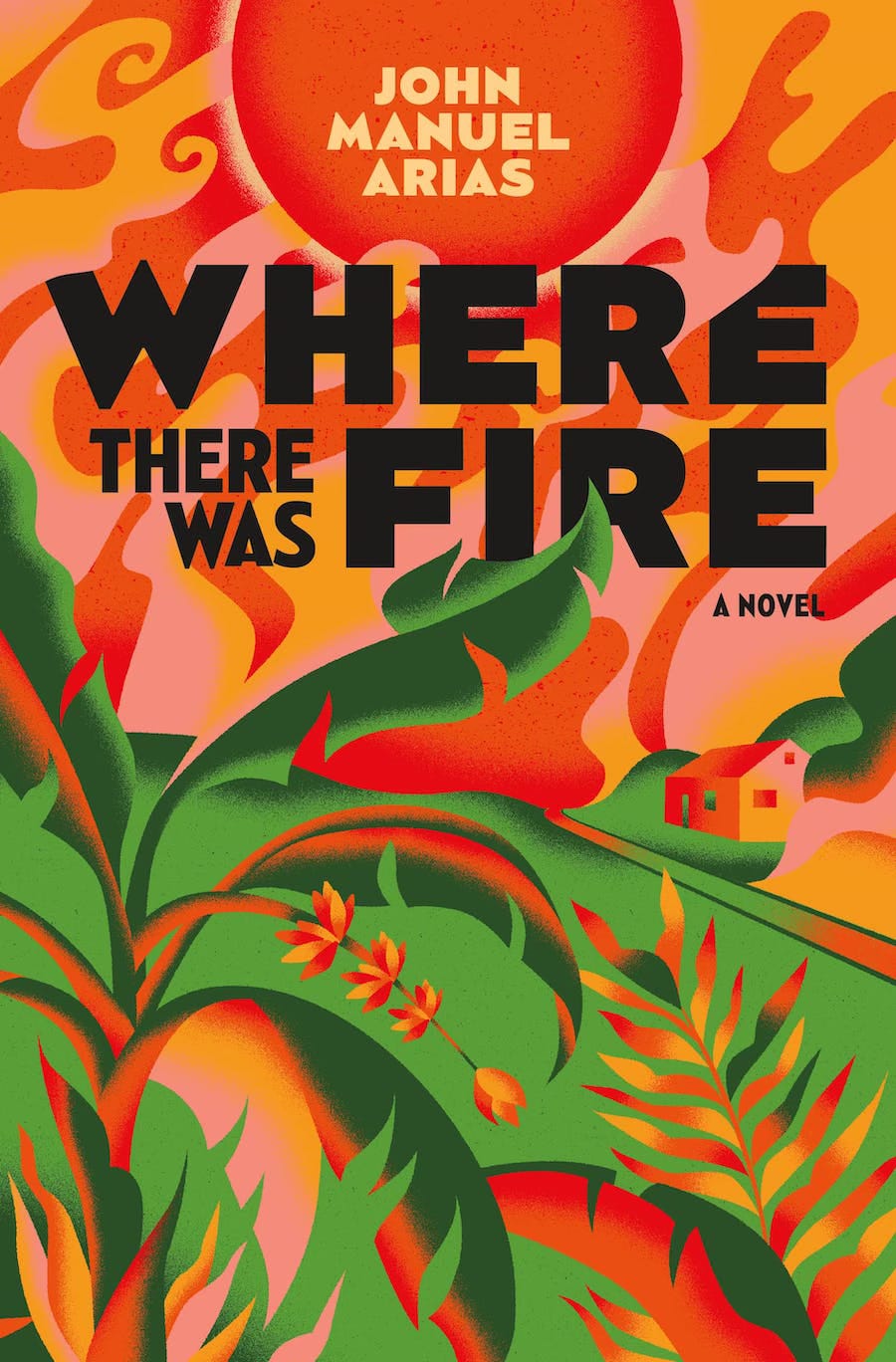
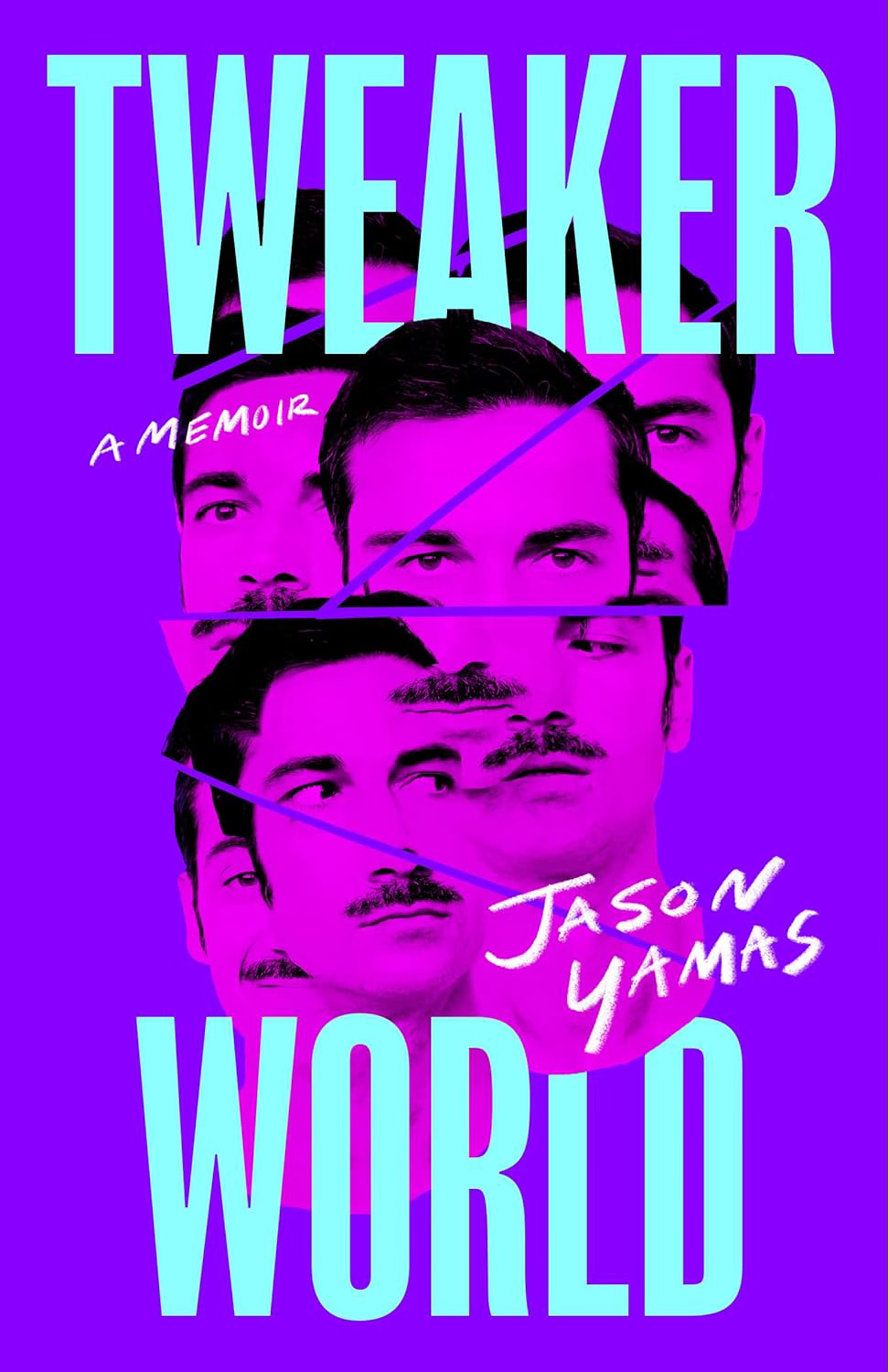



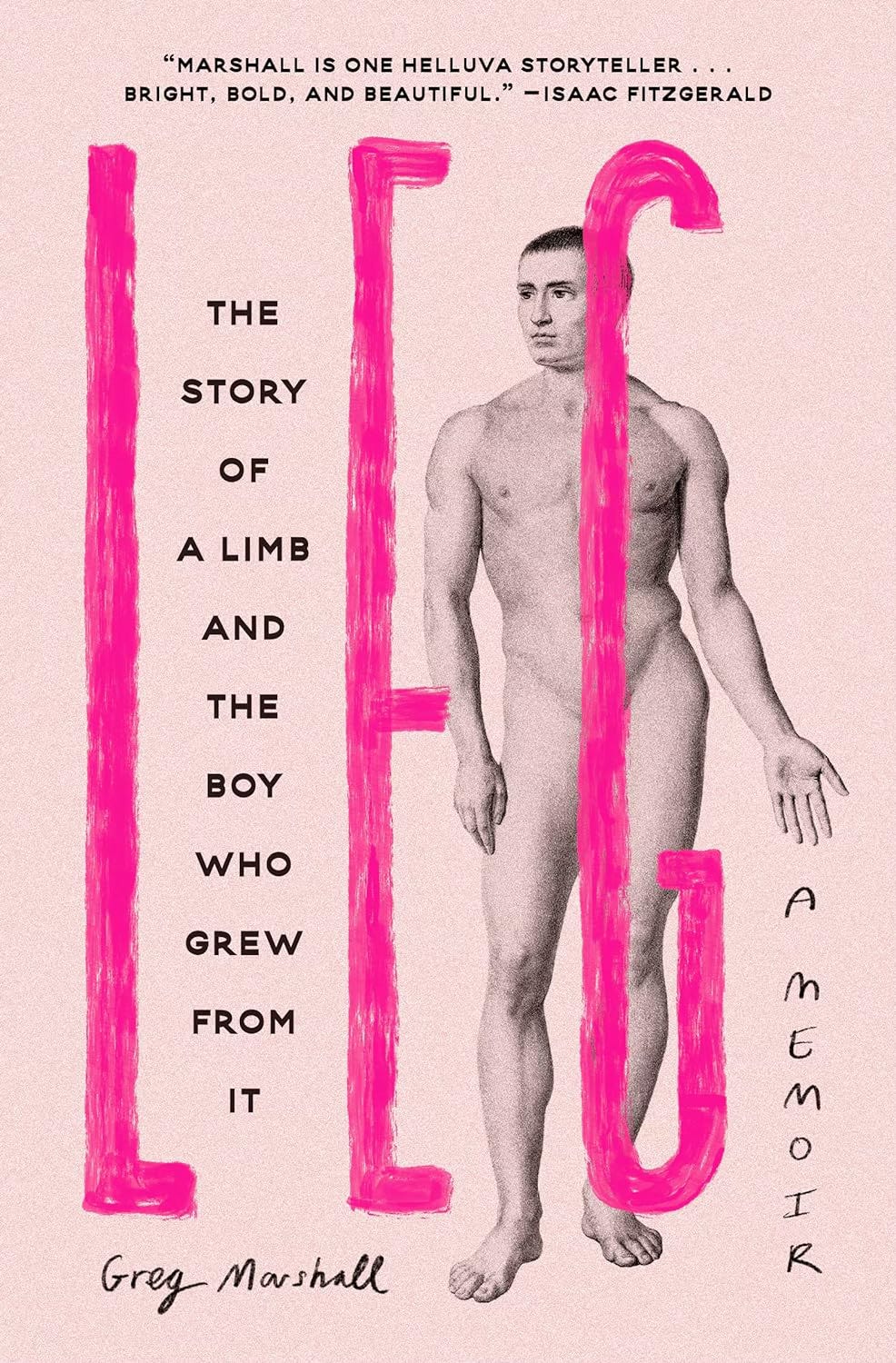
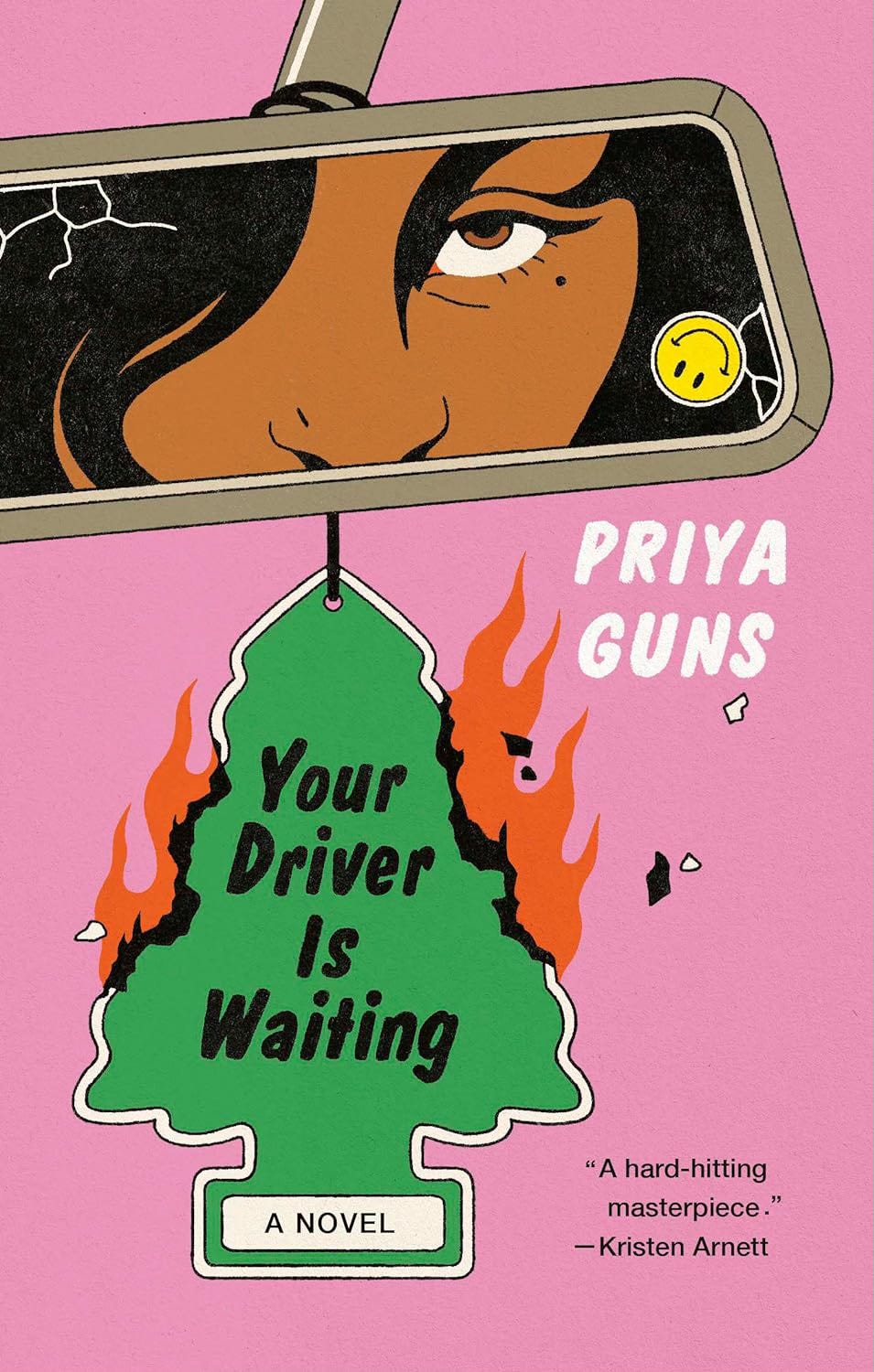


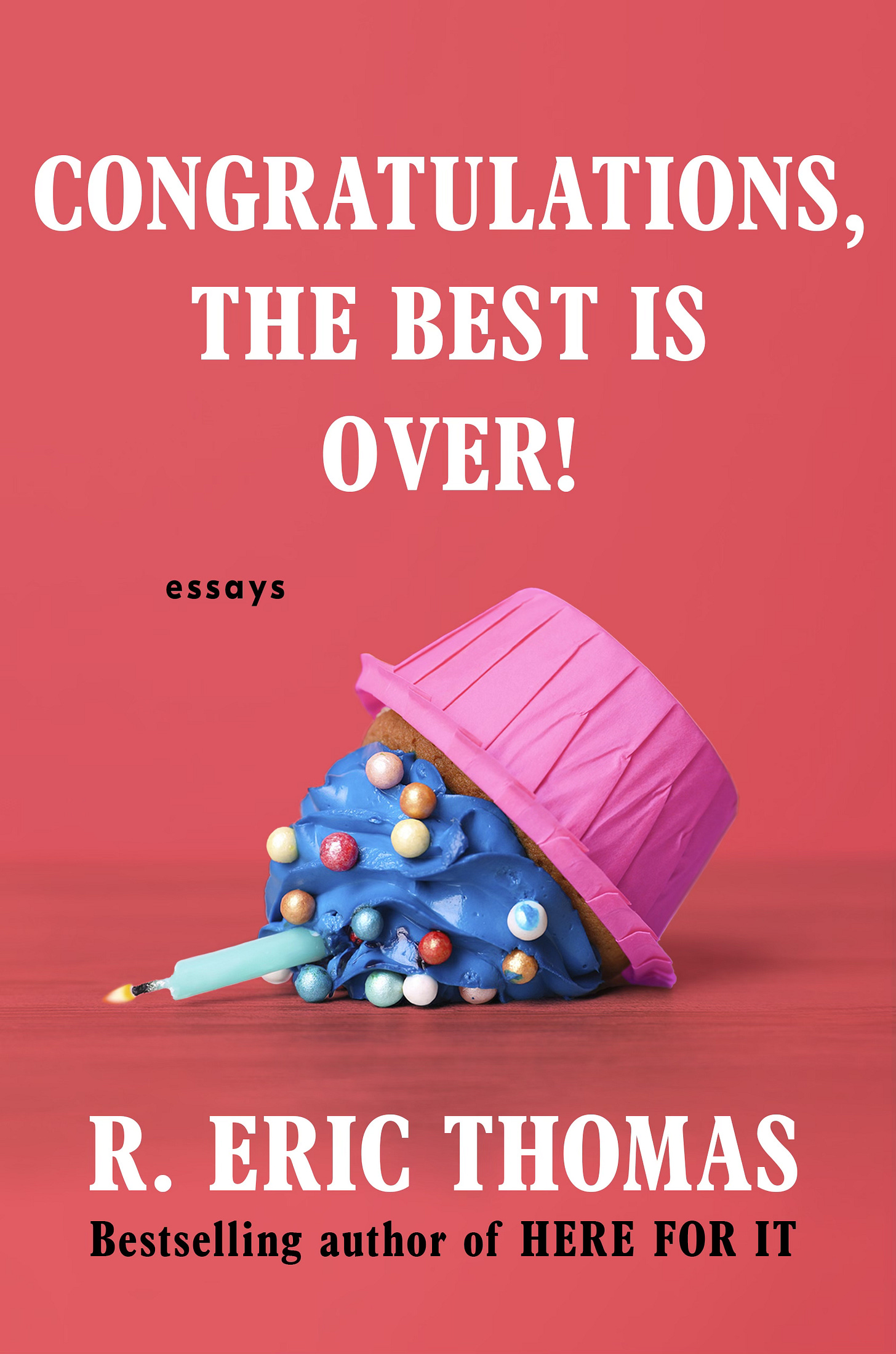
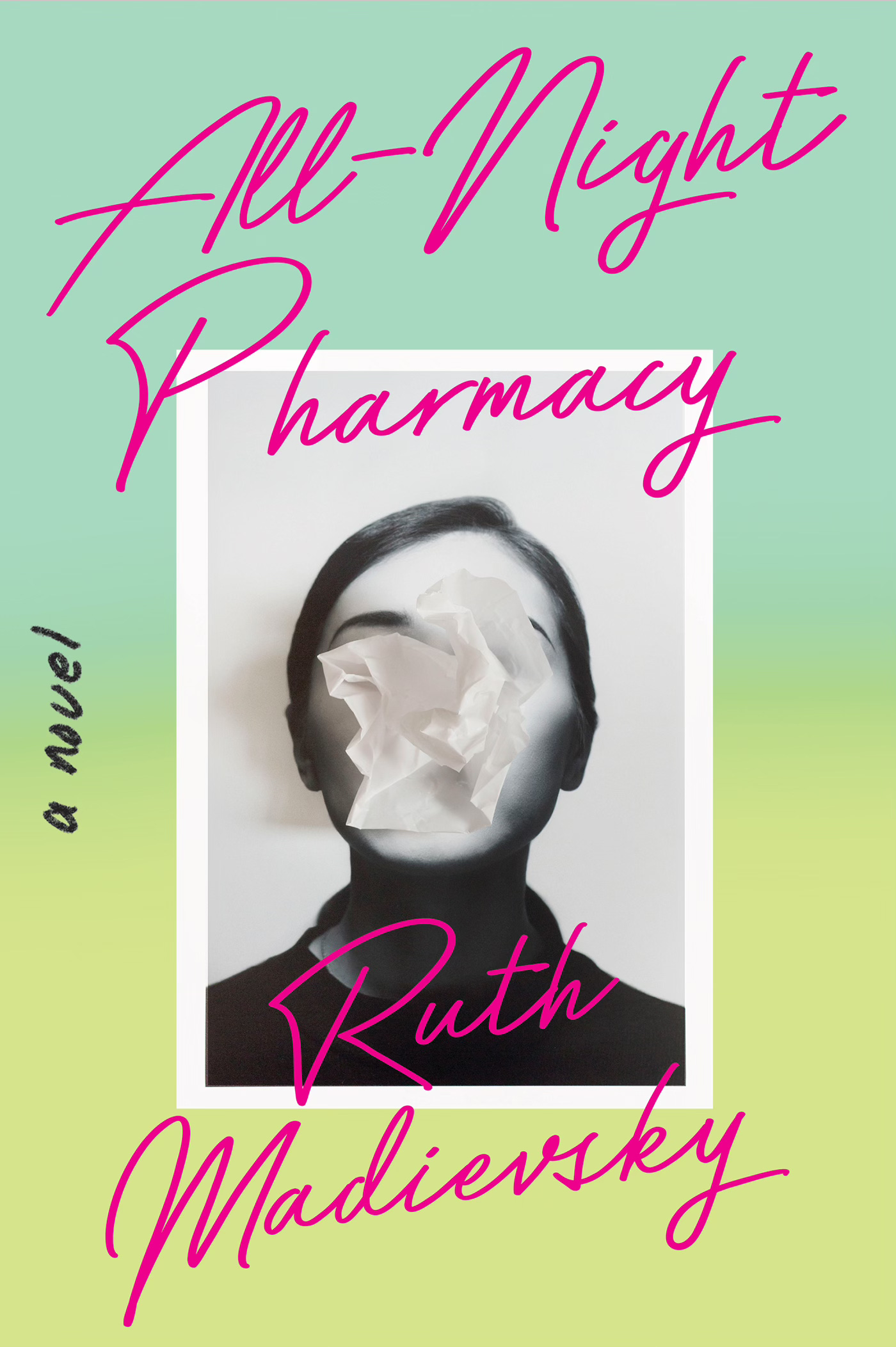
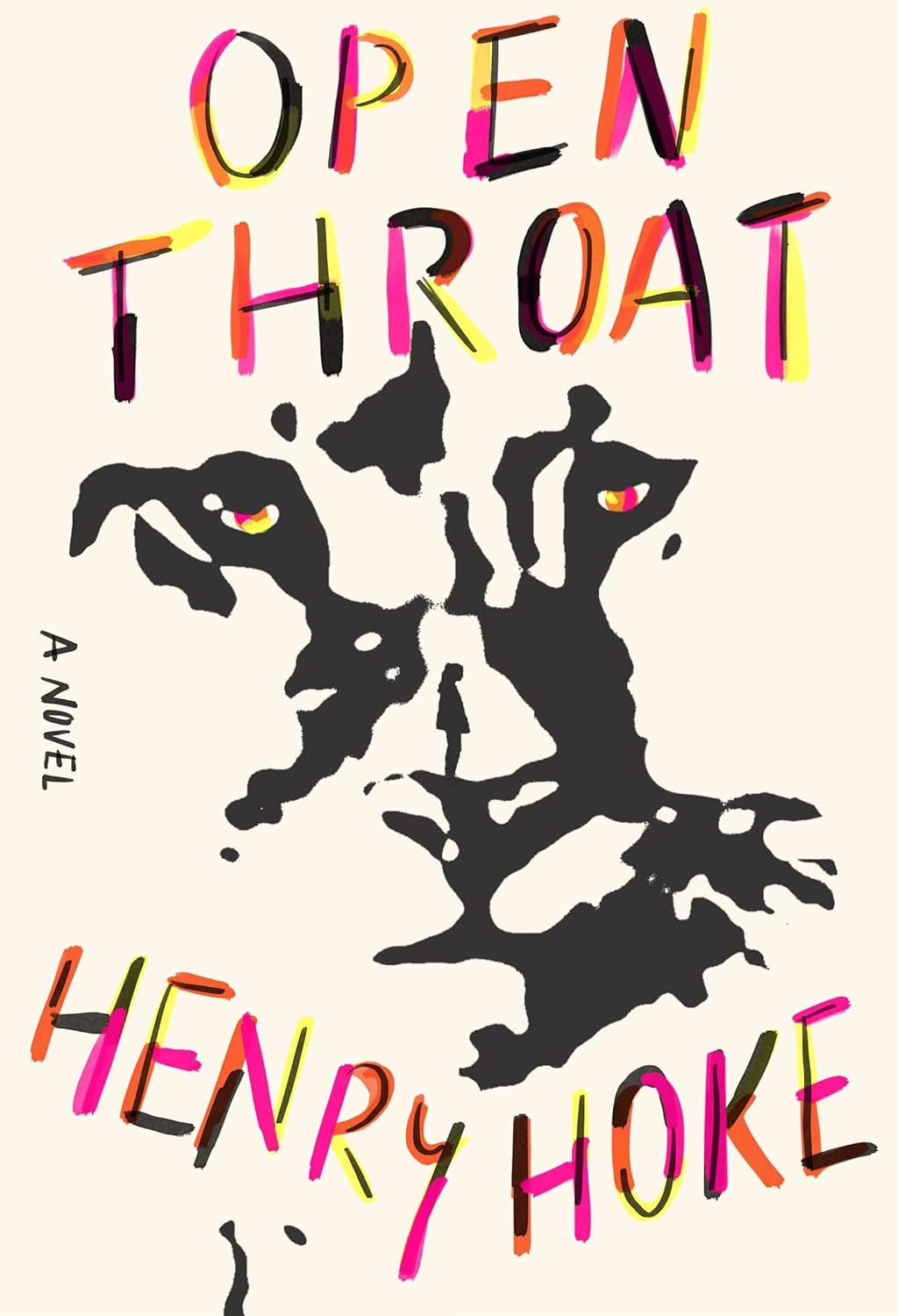


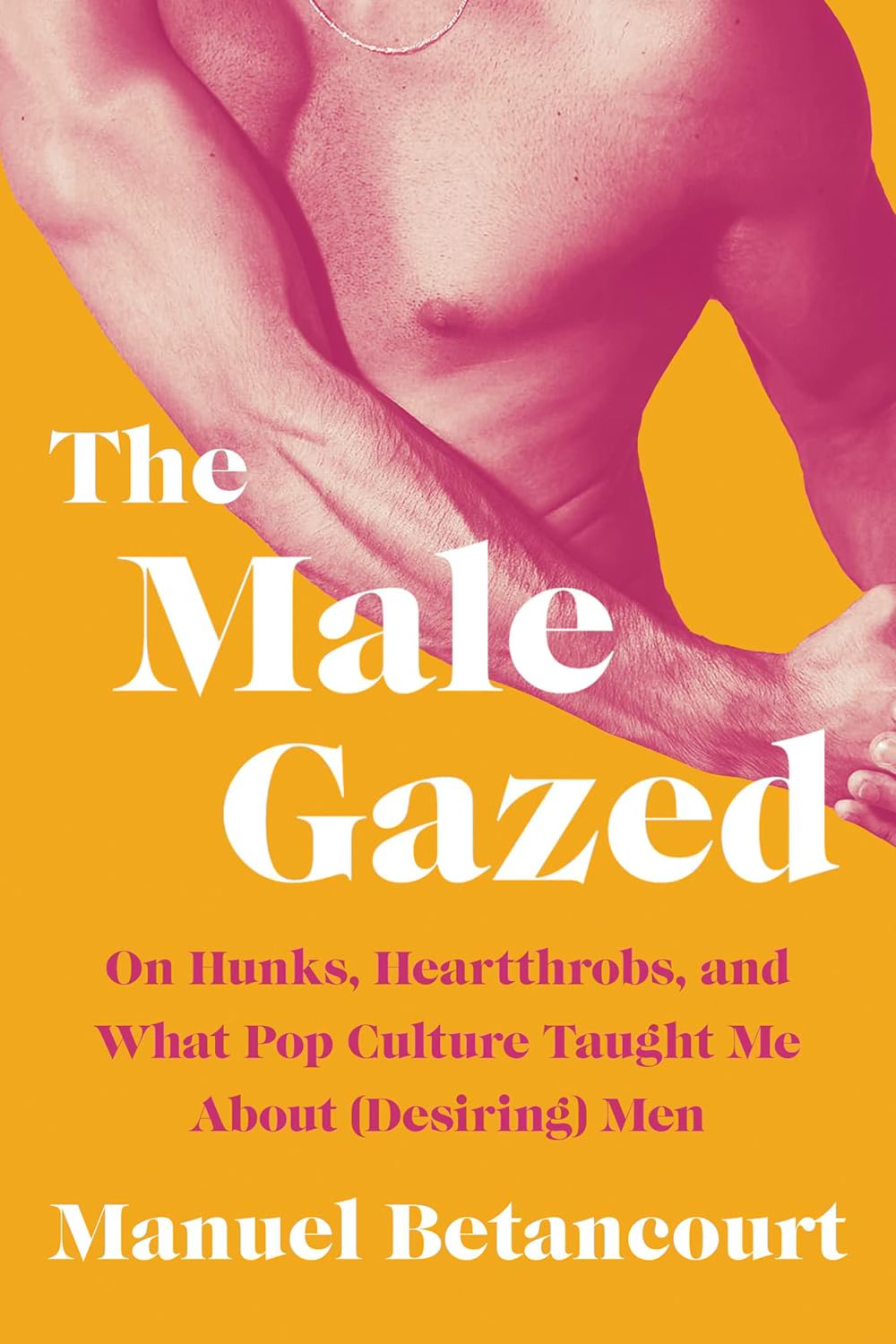
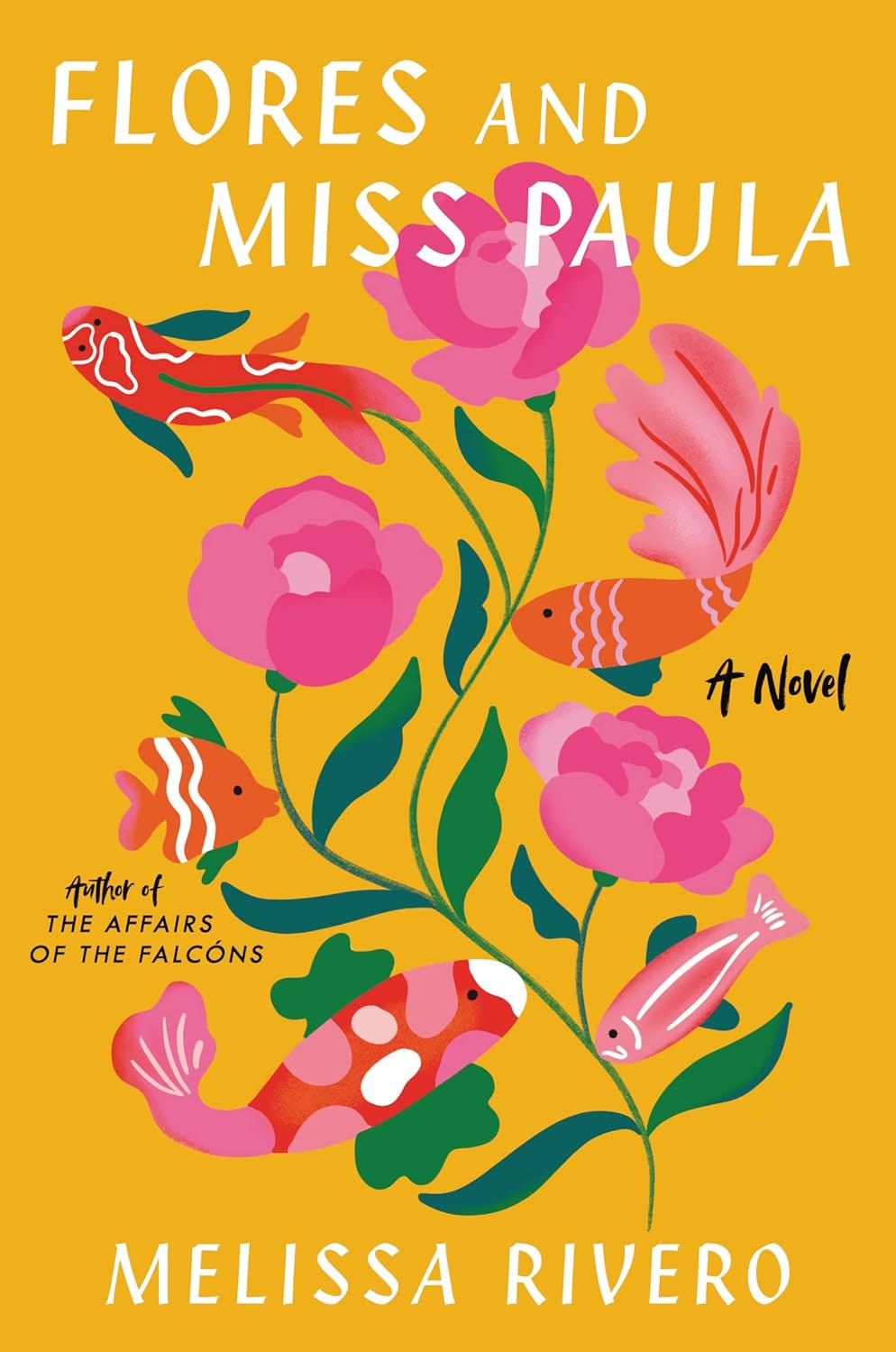
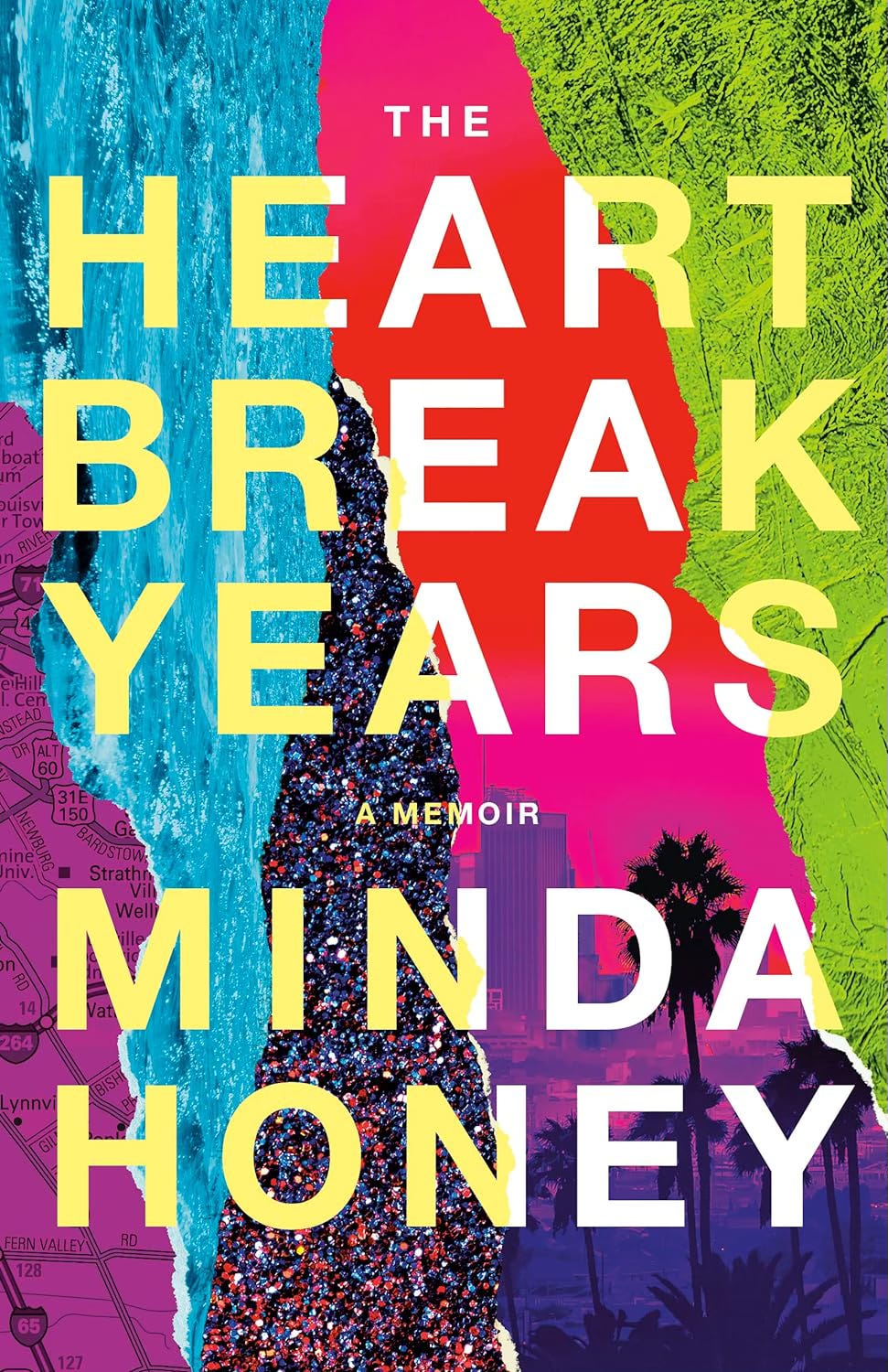
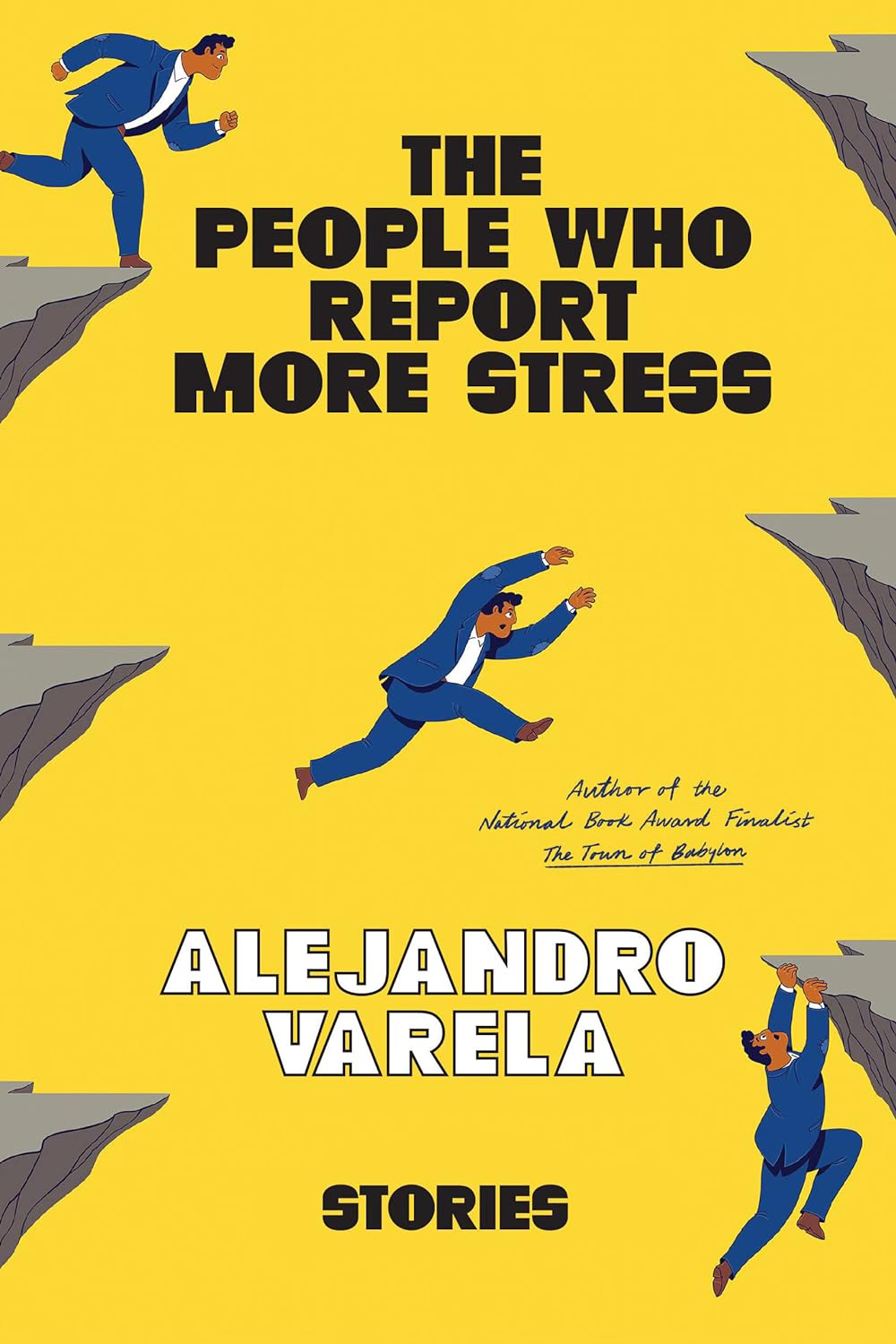


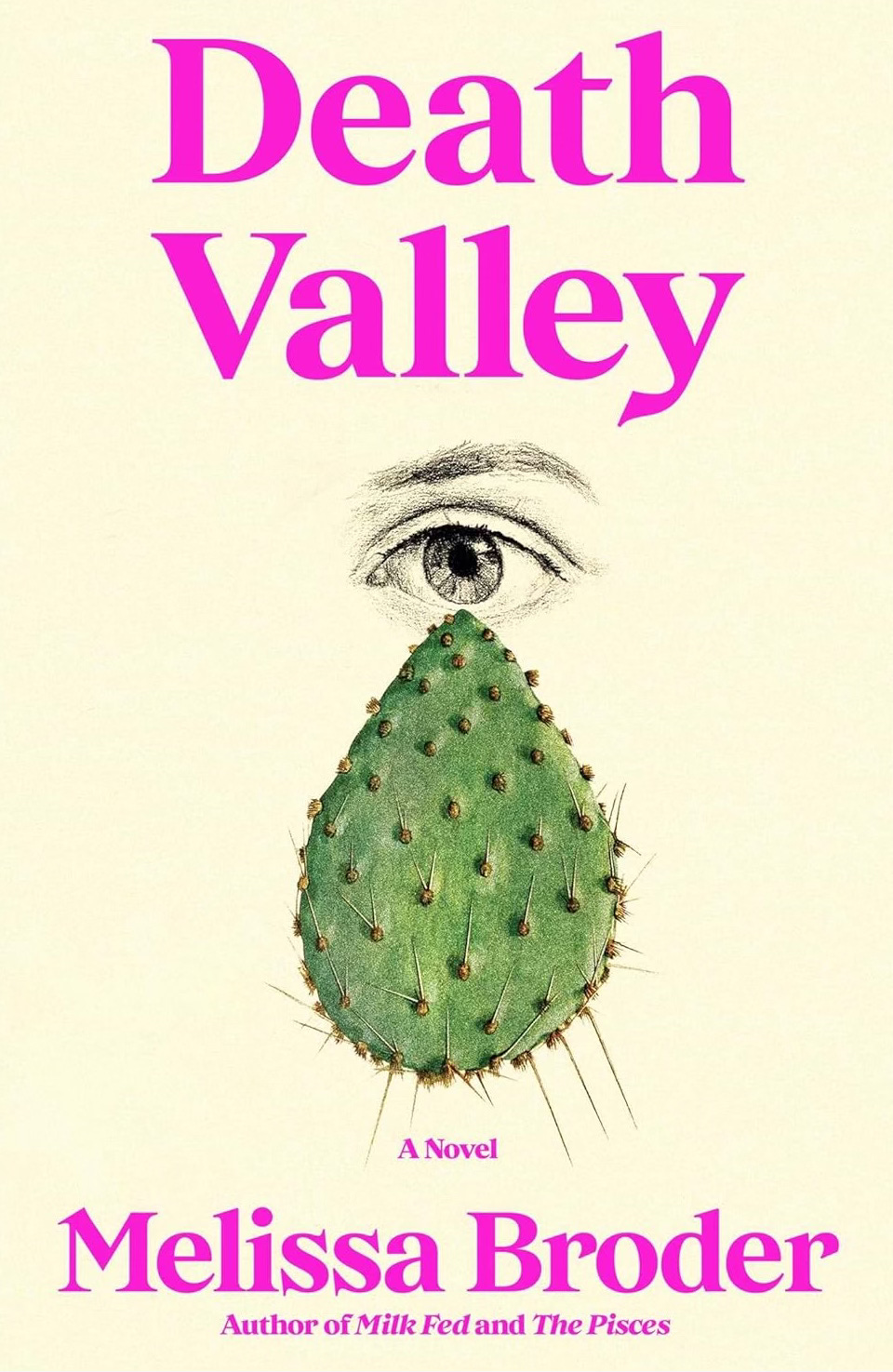
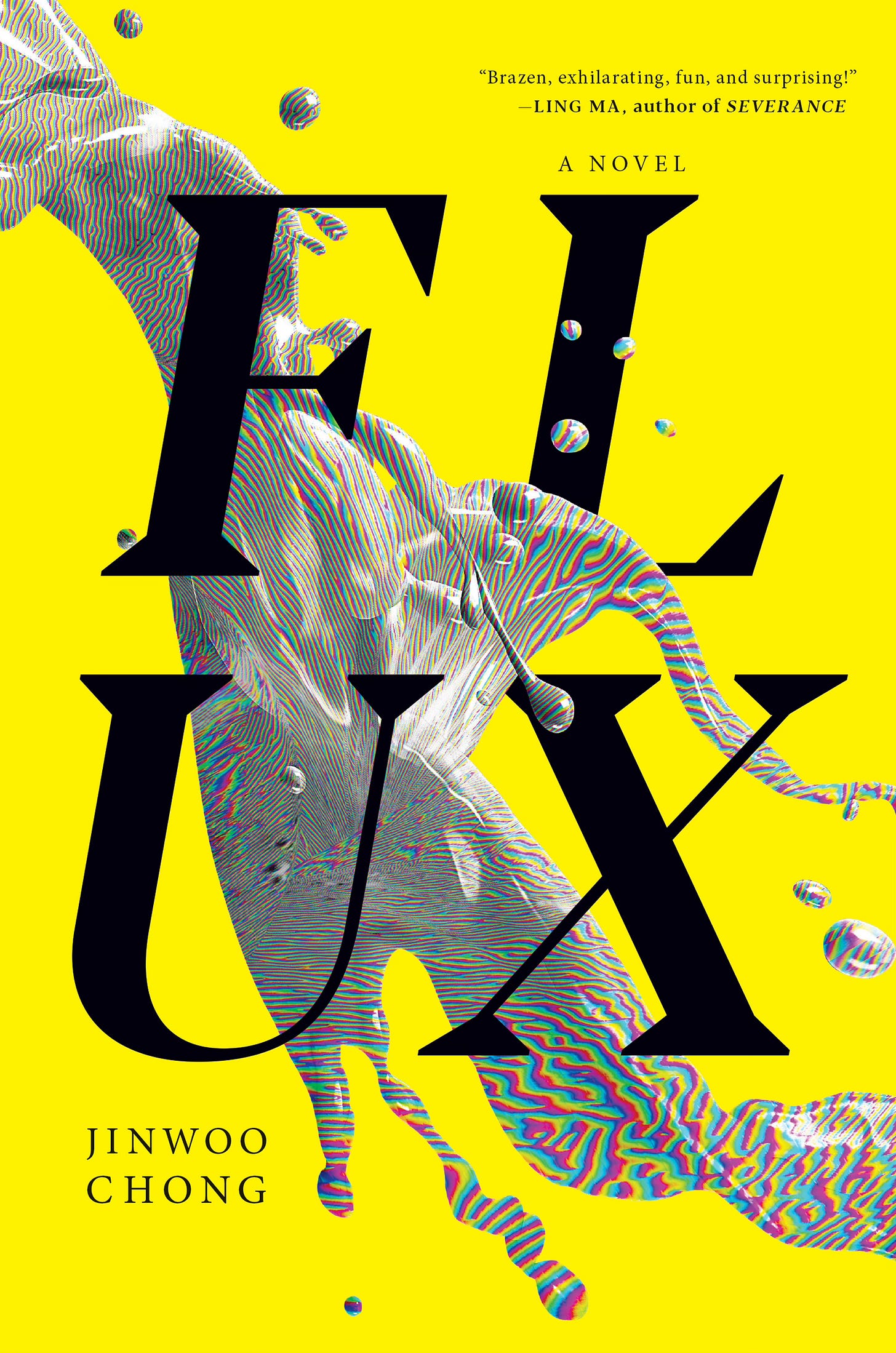

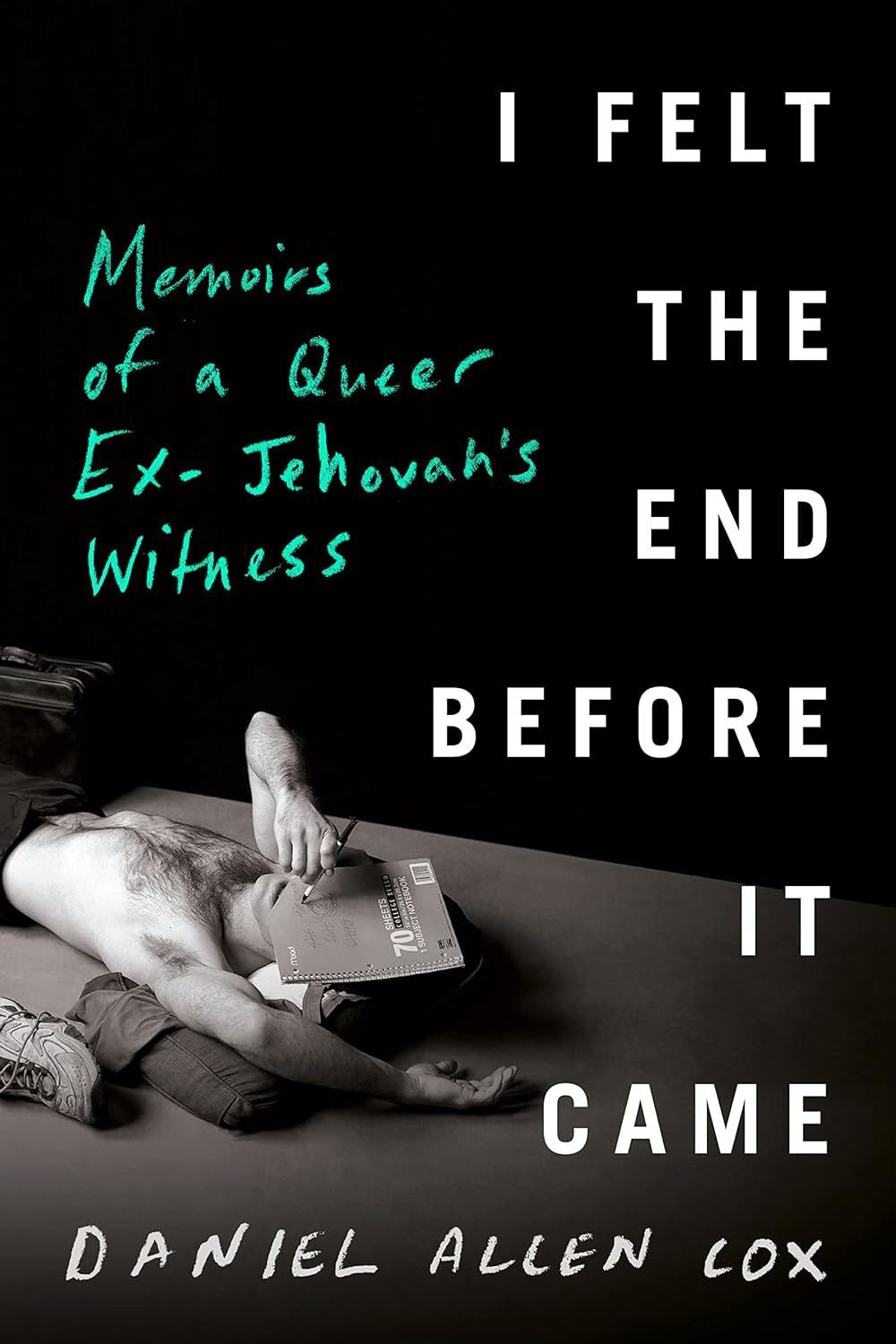
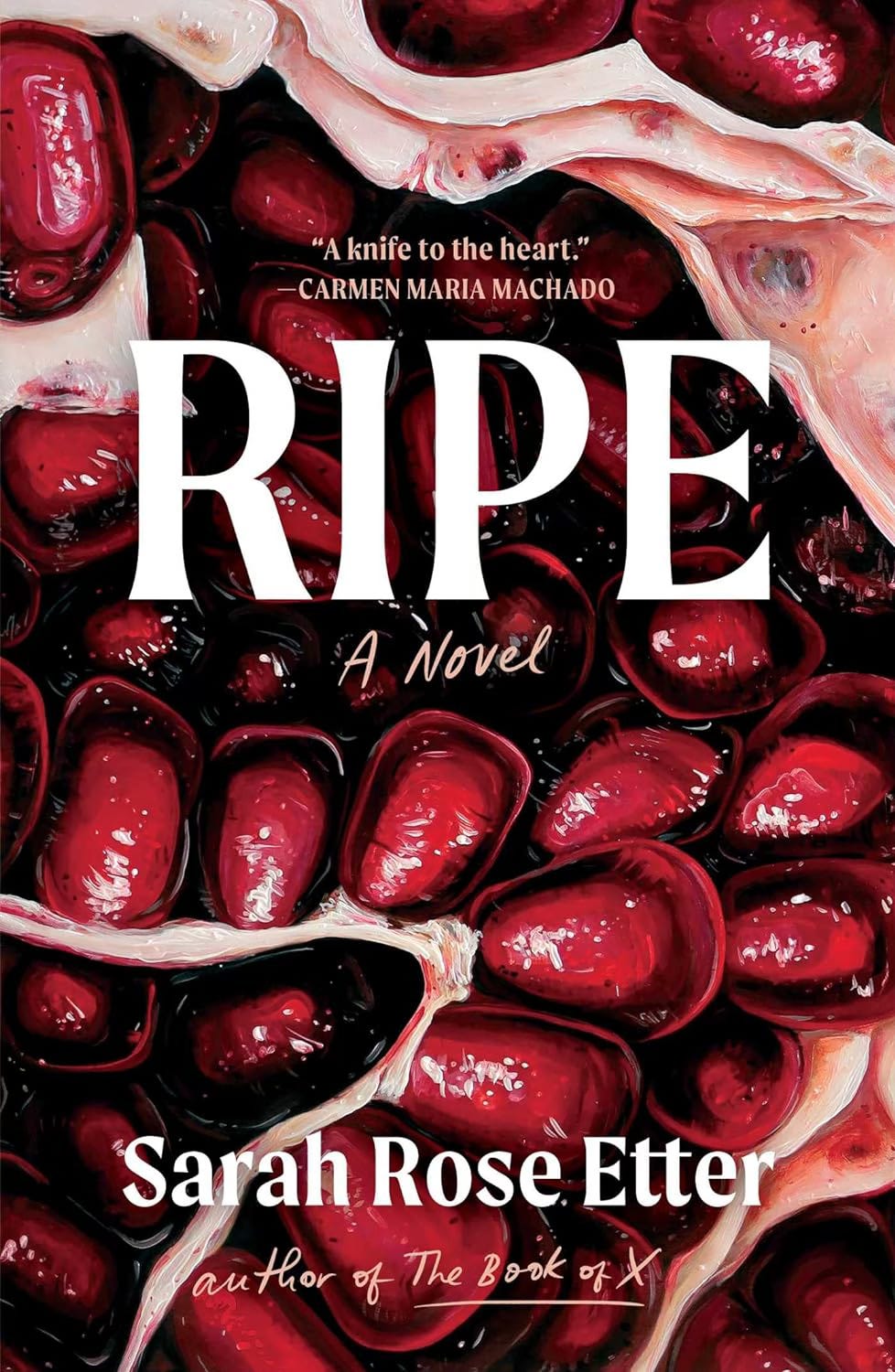

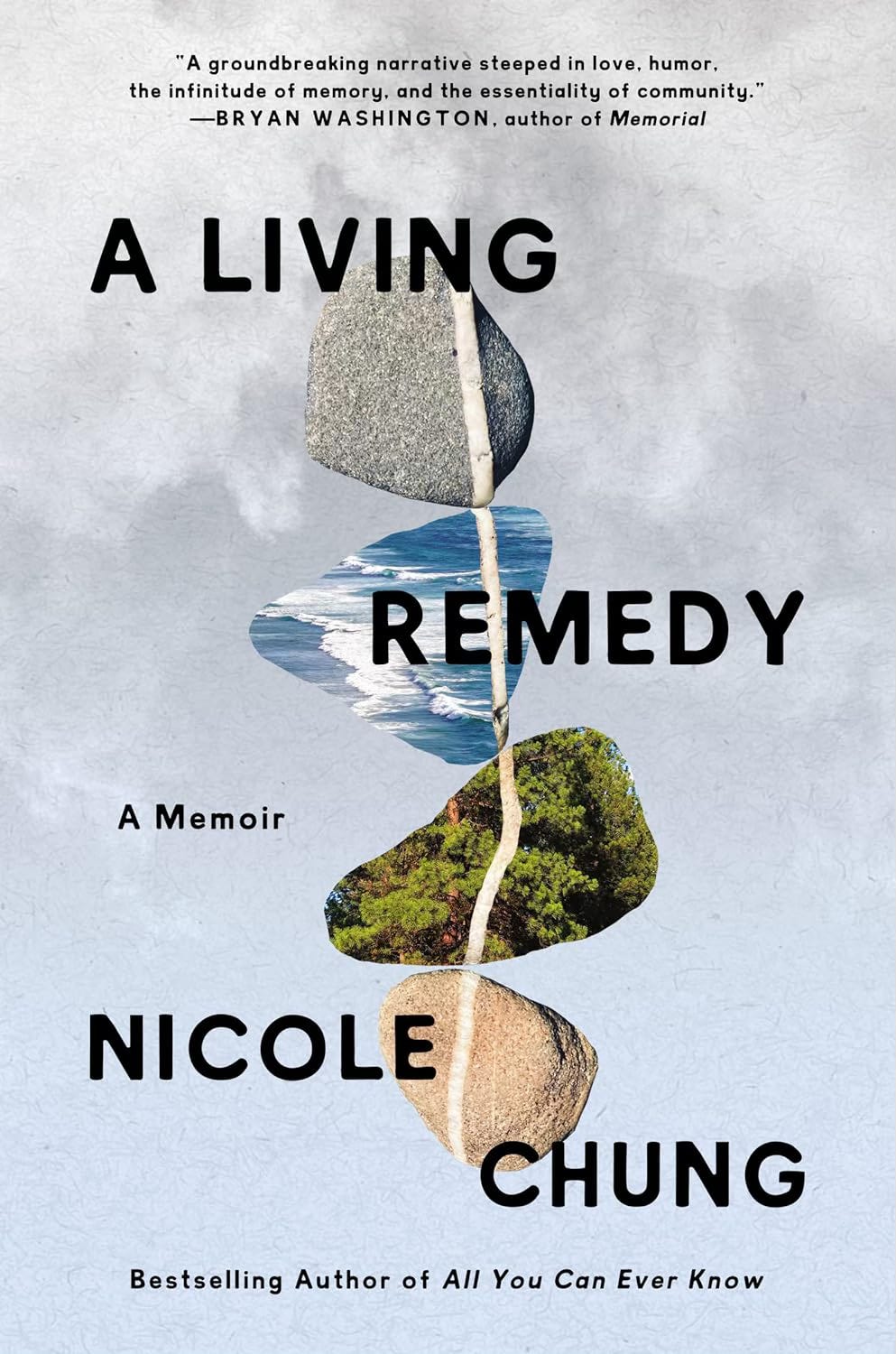
LOVE the diversity of authors on your list!! Thank you for this!
I added six of your choices to my up next list. Thanks so much 😊